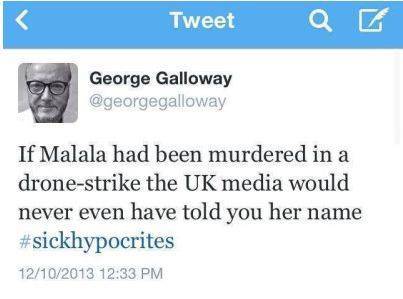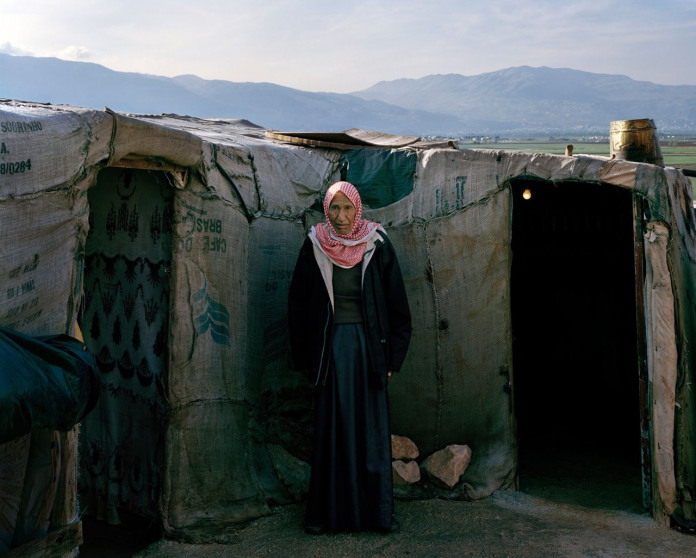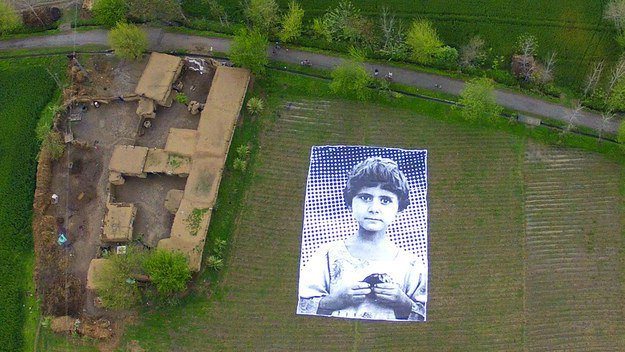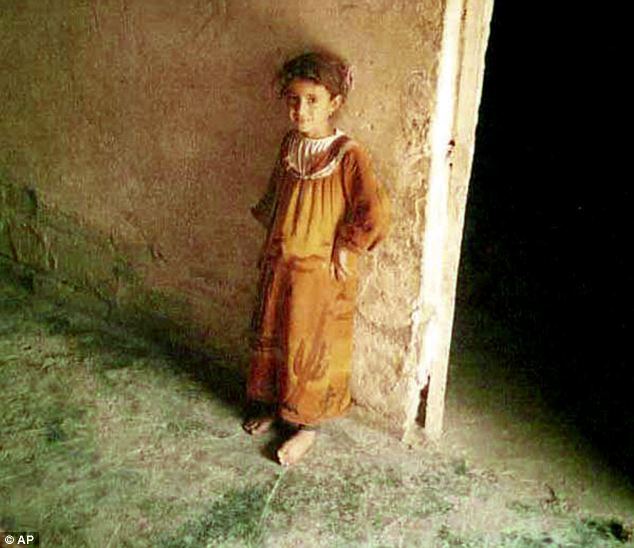Why I Can’t Celebrate Malala’s Nobel Peace Prize
NOBEL LAUREATES, 20 Oct 2014
Middle East Revised - TRANSCEND Media Service
The Nobel Peace Prize was awarded this Friday to India’s Kailash Satyarthi and Pakistan’s Malala Yousafzai for their struggles against the suppression of children and for young people’s rights, including the right to education. That is great news, and it might almost mean Nobel Peace Prize makes sense again, after being awarded to Barack Obama in 2009 “for his extraordinary efforts to strengthen international diplomacy and cooperation between peoples”, and to European Union in 2012 “for over six decades contributed to the advancement of peace and reconciliation, democracy and human rights in Europe”.
Still, there is something that really troubles me. How come we (meaning the West) always recognize the “devils” of the East, the torments children like Malala had to and have to go through (in her case, with the Taliban), but always fail to recognize our own participation in creating those “devils”? How come we never talk about the things our governments are doing to the children of Pakistan, or Syria, or Iraq, or Palestine, or Yemen? Let’s just take drone strikes as an example. Last year’s tweet by George Galloway might illustrate this hypocrisy.
 Galloway is absolutely right. We would never even know her name. But, since Malala’s story fits into the western narrative of the oriental oppression (in which the context underlying the creation of the oppression is left out), we all know Malala’s name. Like Assed Baig writes:
Galloway is absolutely right. We would never even know her name. But, since Malala’s story fits into the western narrative of the oriental oppression (in which the context underlying the creation of the oppression is left out), we all know Malala’s name. Like Assed Baig writes:
“This is a story of a native girl being saved by the white man. Flown to the UK, the Western world can feel good about itself as they save the native woman from the savage men of her home nation. It is a historic racist narrative that has been institutionalised. Journalists and politicians were falling over themselves to report and comment on the case. The story of an innocent brown child that was shot by savages for demanding an education and along comes the knight in shining armour to save her. The actions of the West, the bombings, the occupations the wars all seem justified now, ‘see, we told you, this is why we intervene to save the natives.’”
The problem is, there are thousands of Malalas West helped create with endless wars, occupations, interventions, drone strikes, etc. In Last Week Tonight with John Oliver, one can hear how little we know about the drone strikes – its aims, targets, results. “Right now we have the executive branch making a claim that it has the right to kill anyone, anywhere on Earth, at any time, for secret reasons based on secret evidence, in a secret process undertaken by unidentified officials. That frightens me.” This is how Rosa Brooks, a Georgetown professor and former Pentagon official under President Obama, explained the US policy on drone strikes during a congressional hearing last year.
httpv://www.youtube.com/watch?v=K4NRJoCNHIs
The following photo presents the piece that was installed in Khyber Pakhtunkhwa (KPK) province, close to Pakistan’s northwest border with Afghanistan, by an art collective that includes Pakistanis, Americans and others associated with the French artist JR. The collective said it produced the work in the hope that U.S. drone operators will see the human face of their victims in a region that has been the target of frequent strikes.
That is the reality we are not being presented with. Another reality is the story of Abeer Qassim Hamza al-Janabi, 14-year-old Iraqi girl, who was gang raped by five U.S. Army soldiers and killed in her house in Yusufiyah (Iraq) in 2006. She was raped and murdered after her parents and six-year-old sister Hadeel Qasim Hamza were killed. Also not irrelevant to mention is that Abeer was going to school before the US invasion but had to stop going because of her father’s concerns for her safety.
And while the West applauds Malala (as they should), I am afraid it might be for the wrong reasons, or with a wrong perspective. It feels like the West wants to gain an agenda that suits them or the policies they want. That is also why Malala’s views on Islam are rarely presented. She uses her faith as a framework to argue for the importance of education rather than making Islam a justification for oppression, but that is rarely mentioned. It also “doesn’t fit”.
So, my thoughts were mixed this Friday when I heard the news about the Nobel Peace Prize. On so many levels. They still are. We’ve entered a new war, and peace prize award ceremonies seem ridiculous after looking at this photo.

“They say that if God loves you, He will let you live a long life, but I wish that He loved me a little less. I wish that I didn’t live long enough to see my country in ruins.” Ahmad, a 102 year old Syrian refugee /photo by A. McConnell, UNHCR/
Sure, we must acknowledge the efforts of those who are fighting for a better world, but when it is done in a way that feels so calculated, unidimensional, loaded with secret agendas and tons of hypocrisy – I just can’t celebrate it.
Go to Original – middleeastrevised.com
DISCLAIMER: The statements, views and opinions expressed in pieces republished here are solely those of the authors and do not necessarily represent those of TMS. In accordance with title 17 U.S.C. section 107, this material is distributed without profit to those who have expressed a prior interest in receiving the included information for research and educational purposes. TMS has no affiliation whatsoever with the originator of this article nor is TMS endorsed or sponsored by the originator. “GO TO ORIGINAL” links are provided as a convenience to our readers and allow for verification of authenticity. However, as originating pages are often updated by their originating host sites, the versions posted may not match the versions our readers view when clicking the “GO TO ORIGINAL” links. This site contains copyrighted material the use of which has not always been specifically authorized by the copyright owner. We are making such material available in our efforts to advance understanding of environmental, political, human rights, economic, democracy, scientific, and social justice issues, etc. We believe this constitutes a ‘fair use’ of any such copyrighted material as provided for in section 107 of the US Copyright Law. In accordance with Title 17 U.S.C. Section 107, the material on this site is distributed without profit to those who have expressed a prior interest in receiving the included information for research and educational purposes. For more information go to: http://www.law.cornell.edu/uscode/17/107.shtml. If you wish to use copyrighted material from this site for purposes of your own that go beyond ‘fair use’, you must obtain permission from the copyright owner.


Hello TMS
This is a very relevant article, thank you for sharing it !
I just wonder who the author is ? The name that is posted now is that of Abeer Qassim Hamza al-Janabi – that must surely be a mistake.
Kind regards
Cecilie Weisberg
You may verify the author by going to the original post on Middle East Revised.
Why do you affirm it must be a mistake?
I believe it is a mistake because Abeer Qassim Hamza al-Janabi is the name of the 14 old girl who was killed in Iraq in 2006. In the original article her name appears as the first of several tags, but the authors name does not seem to appear.
Thank you for you help !
Thank YOU. I will delete this article because we don’t post anonymous pieces here.
Your assistance indeed appreciated.
Antonio, TMS editor